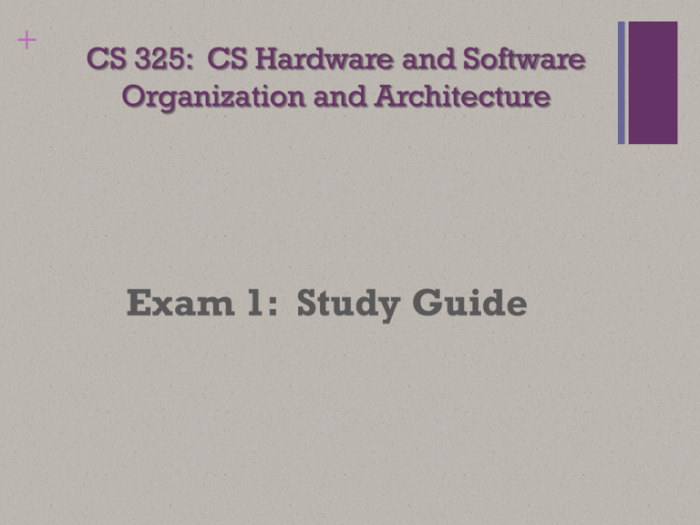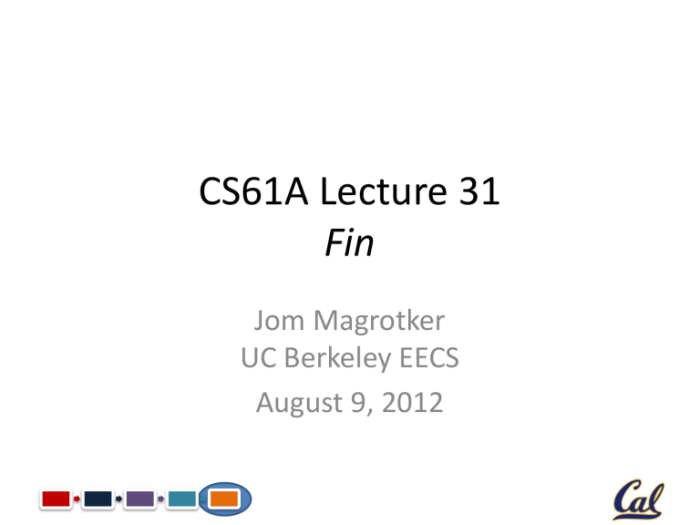Cs61a midterm 2 study guide – Prepare for success in CS61A Midterm 2 with our meticulously crafted study guide. Designed to empower you with a deep understanding of key concepts, practice problems, and time management strategies, this guide will guide you towards a confident and successful exam experience.
Our study guide follows the course syllabus closely, ensuring that you cover all the essential material. We’ve organized the content into manageable sections, making it easy for you to focus on specific topics and track your progress.
Course Overview: Cs61a Midterm 2 Study Guide
CS61A Midterm 2 is a significant milestone in your academic journey, designed to assess your understanding of the fundamental concepts covered in the first half of the course. The midterm will encompass a comprehensive range of topics, providing you with an opportunity to showcase your grasp of essential programming principles and techniques.
The course content covered in the midterm includes:
- Data Structures: Lists, Stacks, Queues, Trees, and Maps
- Algorithms: Searching, Sorting, Recursion, and Iteration
- Object-Oriented Programming: Classes, Objects, and Inheritance
- Testing and Debugging: Unit testing, debugging strategies, and common errors
- Basic Java Syntax: Data types, variables, operators, and control flow
Study Guide Structure
To make the most of your study time, it’s important to have a structured study guide. This will help you stay organized and focused, and it will ensure that you cover all of the material that will be on the exam.
One way to structure your study guide is to divide the material into manageable sections. This could be done by following the course syllabus or lecture order. Once you have divided the material into sections, you can start to organize them logically.
For example, you could group related topics together or you could create a timeline of the material.
Tips for Creating a Study Guide
- Use clear and concise language.
- Highlight important points.
- Include practice questions.
- Review your study guide regularly.
3. Key Concepts and Definitions

In this section, we will delve into the essential concepts and definitions that form the foundation of the midterm. Understanding these concepts is paramount for your success in the exam.
Let’s begin by clarifying some key terms and ideas that you should be familiar with:
Recursion
- Recursion is a technique in which a function calls itself repeatedly to solve a problem.
- It involves breaking down the problem into smaller, similar subproblems and calling the function again to solve each subproblem.
- The function must have a base case that stops the recursion and provides a solution to the smallest subproblem.
Iteration
- Iteration is a technique in which a loop is used to repeat a block of code a specified number of times.
- It involves using a variable to keep track of the current iteration and incrementing it until the desired number of iterations is reached.
- Iteration is often used when the number of repetitions is known in advance.
Data Structures
- Data structures are organized ways of storing and accessing data.
- They provide efficient methods for adding, removing, and searching for data.
- Common data structures include arrays, linked lists, stacks, and queues.
Algorithms
- Algorithms are step-by-step procedures for solving problems.
- They describe the sequence of operations that need to be performed to achieve a desired result.
- Algorithms can be analyzed for their efficiency and correctness.
Practice Problems and Solutions
To reinforce your understanding of the concepts covered in the midterm, it is essential to engage in practice problems. These problems will not only test your knowledge but also help you identify areas where you need further clarification. In this section, we present a variety of practice problems along with detailed solutions to guide you through the problem-solving process.
Each solution includes a step-by-step explanation of the reasoning behind each step, allowing you to gain a deeper understanding of the concepts involved. By working through these problems, you will not only improve your problem-solving skills but also boost your confidence in tackling the midterm.
Problem 1: List Comprehension
- Given a list of numbers, write a list comprehension to create a new list that contains the square of each number.
- Solution:
- The following list comprehension will generate a new list with the squares of the numbers in the original list:
new_list = [x2 for x in original_list]
- In this comprehension, the expression
x2calculates the square of each numberxin the original list. The result is a new list containing the squared values.
- The following list comprehension will generate a new list with the squares of the numbers in the original list:
Problem 2: Dictionaries
- Create a dictionary that maps student names to their grades.
- Solution:
- The following code creates a dictionary with student names as keys and their grades as values:
student_grades = “Alice”: 90, “Bob”: 85, “Carol”: 95
- In this dictionary, each student’s name is a unique key, and their grade is the corresponding value.
- The following code creates a dictionary with student names as keys and their grades as values:
Time Management and Exam Preparation

Effective time management is crucial during the midterm. Allocate your time wisely, focusing on understanding key concepts rather than memorizing details. Break down the exam material into smaller chunks and tackle them gradually.
Yo, for those sweating over the CS61A Midterm 2 study guide, let’s take a quick detour to explore the fascinating world of prism ballasts ( what is a prism ballast ). They’re like the unsung heroes of lighting, ensuring that your fluorescent bulbs shine bright.
So, if you need a break from studying, dive into this illuminating topic. Then, get back to acing that study guide!
To prepare effectively, review your notes regularly, highlighting important points and formulas. Practice solving problems similar to those expected on the exam. This will boost your confidence and identify areas that need further attention. Additionally, get adequate rest and nutrition to maintain focus and clarity during the exam.
Exam Preparation Tips
- Review notes thoroughly, focusing on key concepts and definitions.
- Practice solving problems similar to those expected on the exam.
- Get enough rest and nutrition to maintain focus and clarity.
- Arrive at the exam venue on time to avoid unnecessary stress.
Additional Resources
Beyond the materials provided in this study guide, we highly encourage you to explore additional resources to enhance your preparation for the midterm exam.
Here are some helpful links:
Lecture Notes, Cs61a midterm 2 study guide
- Access lecture notes from the course website for a comprehensive review of the concepts covered in class.
- These notes provide a detailed summary of the lectures, including key definitions, examples, and explanations.
Online Tutorials
- Explore online tutorials to supplement your understanding of specific topics.
- There are numerous resources available online that provide interactive tutorials, simulations, and practice problems.
Practice Exams
- Take advantage of practice exams to familiarize yourself with the format and types of questions you may encounter on the actual exam.
- Practice exams help you identify areas where you need further review and provide valuable insights into the exam structure.
Support from Ors and Teaching Assistants
If you encounter any difficulties or have specific questions, do not hesitate to seek support from our outstanding ors and teaching assistants.
They are available during office hours and can provide personalized guidance and assistance to help you succeed in the course.
Frequently Asked Questions
What topics are covered in the study guide?
Our study guide covers all the essential topics included in the CS61A Midterm 2 syllabus.
How can I effectively use this study guide?
To maximize the benefits of our study guide, we recommend dedicating regular time to studying, focusing on one section at a time, and actively engaging with the practice problems.
Where can I find additional resources for my preparation?
In addition to our study guide, we encourage you to utilize the provided lecture notes, online tutorials, and practice exams. Seeking support from course instructors or teaching assistants is also a valuable option.